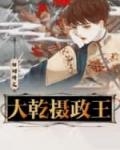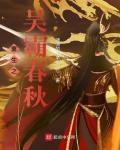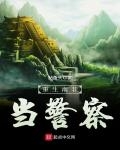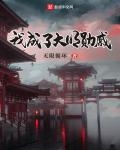Chapter 33: No Punishment for Doctors
Seven people lined up neatly and stood in front of Yuan Zonggao... This time it was no longer a written test, but an oral interview.
Yuan Zonggao did not pretend to sit down and drink tea like Sui Gongyan did. He just stood there, looking at the seven children present with a smile. He looked amiable, yet there was always a hint of conspiracy in him.
"Don't be nervous. I'm not here to test you. I just want to discuss some knowledge with you... Feel free to express your opinions... You don't have to answer first or last, just say whatever comes to your mind..."
Yuan Zonggao first introduced the rules of this exam. Questions would not be answered in order, and if you had an idea you could just speak it out. If you had no opinion you could remain silent throughout the entire test.
When Zhu Hao heard the rules, he wondered why they were similar to the debate competitions of later generations.
Yuan Zonggao said, "When I was reading the Book of Rites, I came across a line: 'Rites are not extended to common people, and punishments are not extended to officials.' These past few days, I have been thinking about it from time to time, and I have been thinking about it from time to time. I wonder what you think?"
The children finally saw what was so special about the examination for selecting tutors in the royal palace.
The question raised is basically the routine of the imperial examination, but it is different from the imperial examination in that one does not need to write eight-part essays to dialectically discuss the topic, but is only allowed to "speak freely." In Zhu Hao's view, this question is a "fatal question."
"If anyone has any opinions, please speak up."
Yuan Zonggao looked around and a smile appeared on the corner of his mouth.
Among the seven candidates, except Zhu Hao, no one understood why Yuan Zonggao asked such a question.
Even Mr. Jing, who had been very conceited before, fell into deep thought at this moment, obviously stumped by this question.
Zhu Hao thought about it for a while and realized that the first test was to test basic qualities, the second test was to test history and knowledge of ancient and modern times, and the third test was to test personal ambitions.
The examinations at Prince Xing’s Palace were indeed a series of tests.
In this case, it is not as simple as simply finding a study companion for the little prince, but carefully selecting good teachers and helpful friends who can help him in the court in the future.
What was the biggest problem during the Zhengde period of the Ming Dynasty?
The laws are in chaos!
If the leader fails to do something, the subordinates will follow suit.
The emperor acted recklessly. First there was Liu Jin, and then there were Qian Ning, Xu Tai, Jiang Bin and other treacherous officials who stirred up trouble in the court. In order to please the emperor and the treacherous officials, the local officials wasted people's money and resources and destroyed the foundation of the Ming Dynasty.
Does Zhu Houzhao have talent?
Maybe.
But you have behaved so recklessly. No one wants to portray you as a wise and benevolent ruler. Unless your son or grandson becomes emperor, works hard to govern the country, and revive the Ming Dynasty, people will only credit you with your achievement. But the problem is that not only have you behaved so recklessly , you don't even have an heir, and the throne has fallen into the hands of another family. Do you still want others to remember you for what you have done?
Dream on!
Zhu Hao understood that Prince Xing, as a royal relative who could covet the throne, had been reflecting on the chaos in the court during the Zhengde period. This question was precisely testing the candidates' views on the chaos in the court, but the question was rather obscure.
Another point is that Zhu Hao has seen the attitude of Laoxing King Zhu Youju towards the various schools of thought from Sui Gongyan's mention of the Legalists. If this question goes as expected, the answer should be based on the Legalists' approach. If he really continues with the idea of "no punishment for scholars and officials", it would be tantamount to falling into a trap.
…
…
Yuan Zonggao waited for a while, but no one came out to answer the question.
Although these candidates are young, they are all very smart and know that the first bird to stick its head out gets shot. It is best for others to speak first and see the examiner's reaction before they can choose the direction of their argument.
"Why, is this question difficult?"
Yuan Zonggao frowned slightly, "Actually, I just want you to come out and say a few words about your own understanding. Even if it is wrong, as long as what you say is meaningful, it is worth praising."
The scene was still dead silent.
Zhu Hao walked out of the crowd.
Yuan Zonggao looked at Zhu Hao, smiled amiably, and nodded, probably because he was satisfied with Zhu Hao's courage to be the first.
The clerk at the side said, "Yuan Changshi, the teacher Sui asked six historical questions before, and he answered them all correctly."
"Yeah?"
Yuan Zonggao nodded again, smiling even more, "At such a young age, you know Chinese history like the back of your hand. You will definitely make great achievements in the future."
Zhu Hao bowed and saluted to express his gratitude for the elder's praise.
The official next to him reminded: "If you have any ideas, just speak them out."
Zhu Hao then spoke: "I have a question for you, Mr. Yuan. What is a scholar-official?"
Never stop until your words shock people.
What are scholar-officials?
Even Yuan Zonggao, who had high hopes for Zhu Hao, originally had a kind smile on his face, but his expression turned ugly when he heard this question.
Are you sure this is the guy who just answered all six history questions correctly?
The clerk had just strongly recommended Zhu Hao, but now he felt ashamed and asked hurriedly, "Are you here to answer questions or to ask questions?"
The guys behind Zhu Hao covered their mouths and snickered, secretly happy that they had made the right choice and did not stand up and embarrass themselves. As long as Zhu Hao was embarrassed first, they would not feel embarrassed even if they answered the questions wrong.
Zhu Hao said: "A gentleman in the court can be called a scholar-official, but can a villain in the court still be called a scholar-official?"
As Zhu Hao finished speaking, not only Yuan Zonggao, but even the clerk next to him was stunned.
This is much more pointed than the question raised by Yuan Zonggao. He did not argue that officials who are well-read in the books of sages should be treated preferentially, but started with the definition of gentlemen and villains. At first glance, it sounds too narrow-minded to be either black or white, but when we consider the reality that the Ming Dynasty is now dominated by corrupt officials, there is nothing wrong with Zhu Hao's words, except that they are a little outrageous, in criticizing current affairs.
Yuan Zonggao nodded slightly: "Since you asked this, I will express my opinion. If villains are in the court, it goes against the Confucian principles, so they naturally cannot be considered scholar-officials." As the chief examiner, he actually discussed with Zhu Hao seriously the issue of whether villains can be considered scholar-officials.
However, this is in line with Yuan Zonggao's requirement when he set the question, that is, to discuss on your own, there is no absolutely correct answer, both pros and cons can be argued and spoken freely.
Just when everyone thought that Zhu Hao would make some shocking conclusion after getting Yuan Zonggao's answer, he bowed deeply, then returned to the queue and remained silent.
The clerk was a little surprised: "Young man, you already know what a scholar-official is, why don't you tell us your opinion?"
Zhu Hao answered politely: "I have already answered this question. Since I am not a scholar-official, the statement that officials should not be punished is biased. As for the specifics... I would like to hear the opinions of other candidates."
What I mean is that I started it, so you can't just let me do all the talking, right?
Shouldn't we listen to other people's opinions?
…
…
Zhu Hao came out, threw a brick and ran away without arguing the issue around his point of view. Yuan Zonggao glanced at him and shook his head slightly, seeming to be unsatisfied.
Zhu Hao remained silent, but he was laughing in his heart.
This is called keeping people on suspense.
First I have aroused your interest. If you want to know what I have to say, you need to clean your ears and wait until you have heard the "dross" from other people before you can say anything!
This way your attention is always on me. Since you have already spoken freely, why can't I express my opinion?
Only with comparison can you realize my excellence.
"What do other candidates think?" the clerk urged.
At this time, Master Jing was under great pressure. At his age, he was considered good if he could recite two or three of the Four Books and Five Classics. How could he study the meaning of the classics sentence by sentence? But he would not give up easily.
I saw Master Jing come out, clasped his hands and said: "A gentleman is concerned with righteousness, while a villain is concerned with profit..."
Here he paused.
"What else?" Yuan Zonggao asked.
This argument was actually derived from Zhu Hao's previous question, and there was no way to go deeper, or it could be said that Master Jing did not have the ability to dig into its inner meaning. After saying this, he could not say anything else.
Master Jing was silent for a long time, then changed the direction of his argument: "Etiquette is not for common people, which means that it is difficult for ordinary people to demand complete etiquette, or in other words, common people cannot master more etiquette..."
Just explanation, no argument.
But even so, it was much better than those candidates who did not speak. Yuan Zonggao nodded slightly, but his face was calm. It was obvious that he wanted to debate the latter sentence "Punishment shall not be imposed on doctors", but Master Jing could not expand on this topic.
After Master Jing retreated, no one spoke for a long time.
Zhu Hao could see that the only one who could really compete with him was Young Master Jing. The other five were still too weak. In this kind of divergent thinking and debate without definite boundaries, they could not stand out.
“Students have opinions.”
Zhu Hao stepped out again.
Yuan Zonggao's eyes sparkled, and he said anxiously, "Go ahead."
Zhu Hao said: "Students have heard that 'if the law is not enforced, it is violated from above'. In order to prevent the upper level from following the lower level, the most important thing is to ensure the implementation of the law, from top to bottom, not from bottom to top."
"oh?"
Yuan Zonggao seemed a little surprised and looked at Zhu Hao with narrowed eyes.
Zhu Hao sneered, knowing that the other party was just pretending, and continued his argument: "If the officials are not punished, the country will not be stable and the people will be difficult to educate. 'When governing a gentleman, you must control his heart, so as to strengthen him with integrity and shame.' If the officials do not know integrity and shame, they cannot even be called gentlemen, let alone officials? The student concluded: If a prince breaks the law, he will be punished the same as a commoner."
Zhu Hao's words were powerful.
Especially the last sentence, "If a prince breaks the law, he shall be punished the same as a commoner," is truly eye-opening. Although there were many remarks in this era that were consistent with this idea, Zhu Hao was the first person to summarize it in this way.
Yuan Zonggao smiled and said, "A prince who breaks the law is guilty of the same crime as a commoner. Do you mean that if the little prince in the palace breaks the law, he is guilty of the same crime as an ordinary citizen?"
"yes."
Zhu Hao did not avoid the question.
Several candidates originally had no direction, but after hearing Zhu Hao's words, they instantly became energized.
The oldest man stepped forward and asked sternly, "If a prince breaks the law, how can he be punished the same as a commoner? According to what you said, isn't the prince no different from a beggar on the street? This is simply alarmist! The ancient sages said that officials should not be punished, but you think it's nonsense."
Zhu Hao said calmly: "This is just one person's opinion. You may not believe it, but I must express my opinion. If you have an opinion, please speak for yourself. I won't stop you!"
After saying that, Zhu Hao stepped back, stood solemnly, and prepared to be a quiet bystander.






